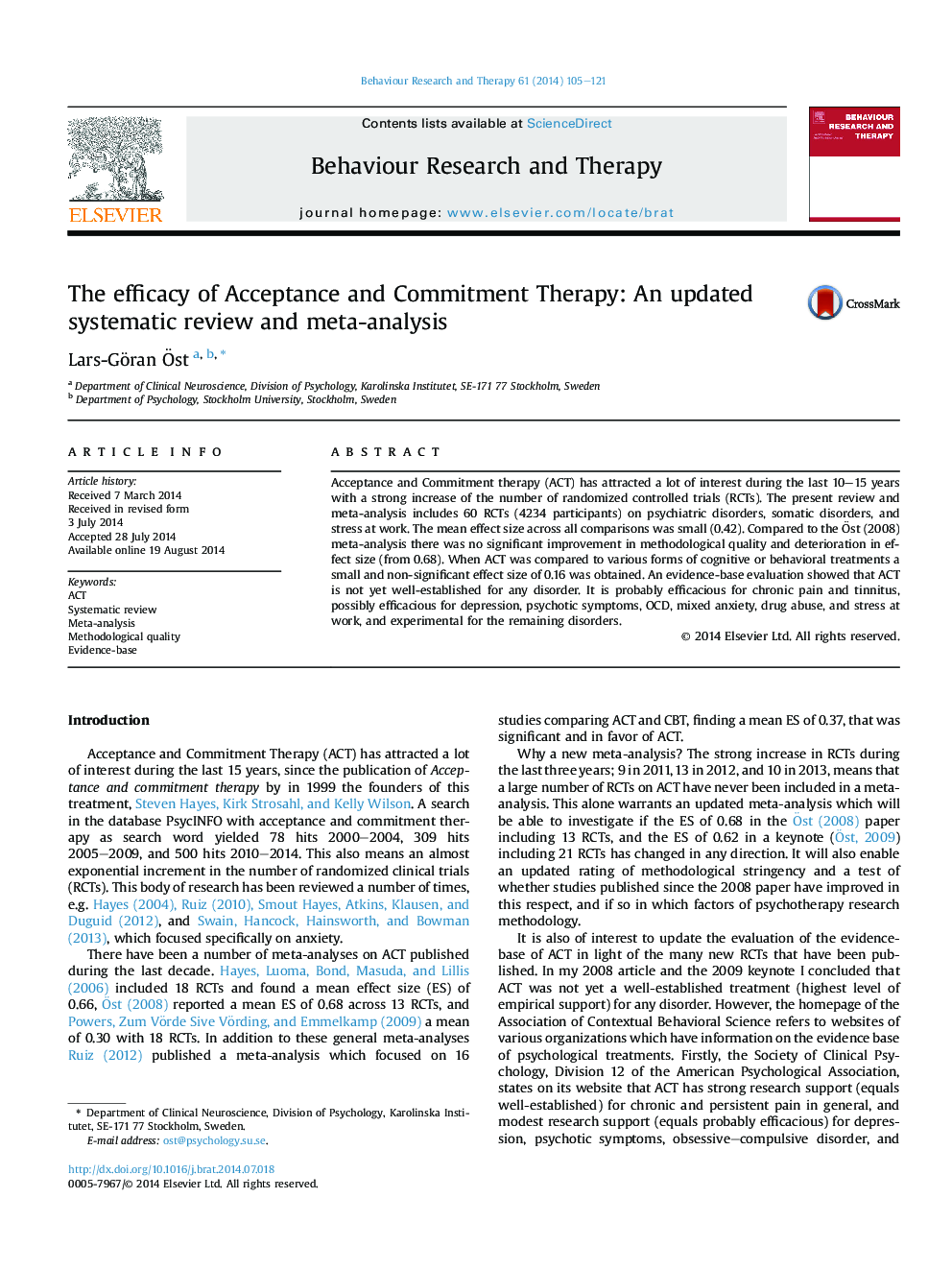| Article ID | Journal | Published Year | Pages | File Type |
|---|---|---|---|---|
| 901840 | Behaviour Research and Therapy | 2014 | 17 Pages |
•ACT RCTs had a number of important methodological problems.•The overall effect size was small.•The ES for ACT-CBT comparisons was not significant.•ACT did not fulfill criteria for well-established treatment for any disorder.
Acceptance and Commitment therapy (ACT) has attracted a lot of interest during the last 10–15 years with a strong increase of the number of randomized controlled trials (RCTs). The present review and meta-analysis includes 60 RCTs (4234 participants) on psychiatric disorders, somatic disorders, and stress at work. The mean effect size across all comparisons was small (0.42). Compared to the Öst (2008) meta-analysis there was no significant improvement in methodological quality and deterioration in effect size (from 0.68). When ACT was compared to various forms of cognitive or behavioral treatments a small and non-significant effect size of 0.16 was obtained. An evidence-base evaluation showed that ACT is not yet well-established for any disorder. It is probably efficacious for chronic pain and tinnitus, possibly efficacious for depression, psychotic symptoms, OCD, mixed anxiety, drug abuse, and stress at work, and experimental for the remaining disorders.
